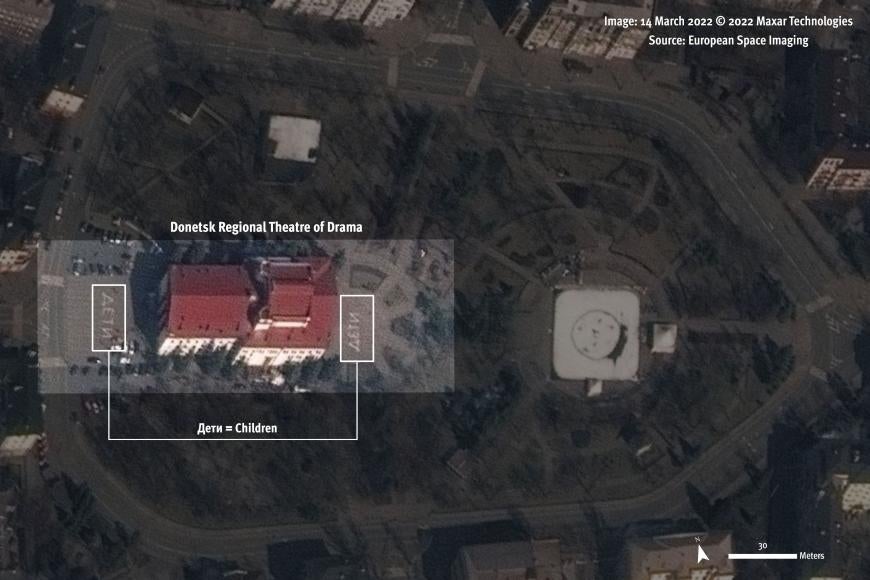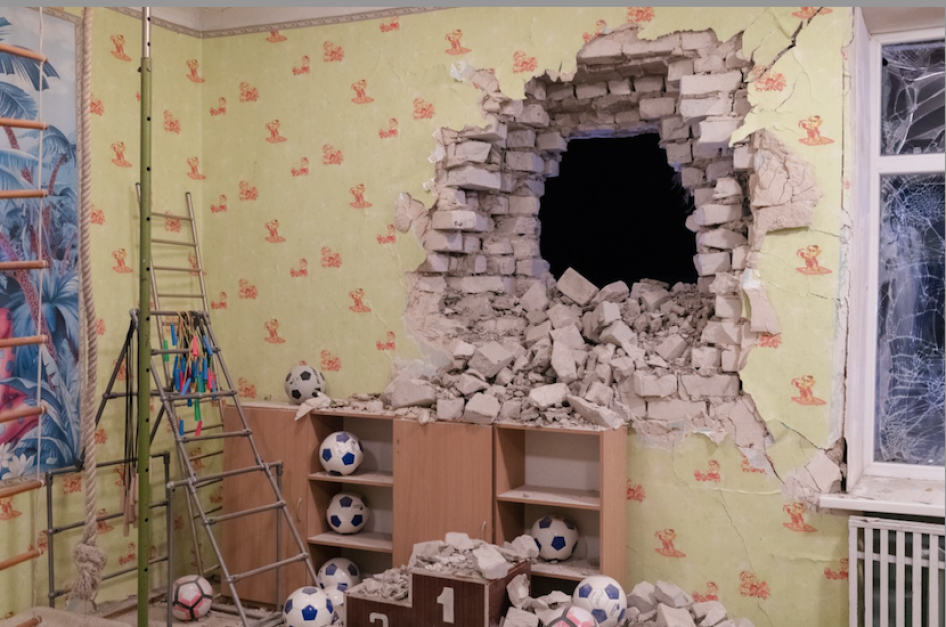[gopher://gopher.floodgap.com/0/feeds/voaheadlines/2024/Oct/28/https---www.voanews.com-a-for-japanese-unit-731-survivor-speaking-truth-carries-a-cost--7841643.html](gopher://gopher.floodgap.com/0/feeds/voaheadlines/2024/Oct/28/https---www.voanews.com-a-for-japanese-unit-731-survivor-speaking-truth-carries-a-cost--7841643.html)
Originally posted by the Voice of America.
Voice of America content is produced by the Voice of America,
a United States federal government-sponsored entity, and is in
the public domain.
For Japanese Unit 731 survivor, speaking truth carries a cost
by William Gallo
Iida City, Japan --
In August 1945, as Soviet troops closed in on Japanese positions in
occupied China, 14-year-old Hideo Shimizu was given a grim task:
Collect and dispose the burnt bones of prisoners who had been murdered.
Only later did he realize he had helped destroy evidence of one of the
20th century's most horrific war crimes: the actions of Unit 731, a
covert branch of the Japanese military that tortured and killed
prisoners in the name of scientific research.
For decades, Shimizu kept his past hidden, not even telling his wife or
the two daughters they raised together in a quiet corner of the
Japanese Alps. But now, at 94, he is not remaining silent.
Though not directly involved in the atrocities, Shimizu is speaking out
about his experience with Unit 731, recently returning to China to
apologize in person.
Reopening such a dark chapter of Japan's past has come at a cost.
Shimizu has endured online attacks by angry nationalists, uneasy
silence from his community and distance from some family members.
Sitting cross-legged on the floor of his small home, which is now
slowly being overtaken by the surrounding vegetation of rural Nagano
Prefecture, Shimizu speaks quietly but with unmistakable conviction as
he discusses the personal toll of his decision.
"I'm ready for it," he told VOA, during what he said was his first
interview with an American reporter. "I'm only telling the truth."
Inhumane research
Unit 731 was a small part of Japan's 1931-45 occupation of China,
though it was perhaps the cruelest.
At its headquarters in Harbin, scientists conducted experiments on
Chinese civilians and other prisoners of war as they pursued biological
and chemical warfare advancements.
The details that have emerged -- testimonies of surviving members,
postwar investigations and research by historians -- reveal practices
that were unspeakably brutal.
Diseased prisoners were locked with healthy ones to see how fast deadly
plagues would spread. Children were forced into gas chambers so doctors
could time their convulsions. Others were subjected to frostbite
experiments, their limbs repeatedly frozen and thawed to study the
effects of extreme cold.
An estimated 3,000 people were killed by such experiments, with many
more believed to have died from biological warfare tests that
intentionally spread deadly diseases in Chinese villages.
Shocking realization
As a young apprentice responsible for taking care of lab rats, Shimizu
didn't understand the full extent of what was happening around him.
His suspicions grew after he was taken to a specimen room, where he saw
preserved body parts, including heads and hands, floating in jars of
formalin. He was especially rattled by the sight of a pregnant woman
whose midsection had been splayed open to expose a fetus.
"I thought it was a study on how to prevent people from getting sick,"
recalls Shimizu. "I only later realized we were infecting and
dissecting people to conduct germ warfare."
Shimizu spent over four months with Unit 731 before fleeing with
retreating Japanese forces. When he returned home, he was told never to
speak about what he had seen.
For over 70 years, he didn't.
Instead, Shimizu focused on building his career as an architect, having
been warned to pursue nonmedical professions.
During those early years, Unit 731 rarely crossed his mind, as he tried
to support his young family in a country rebuilding after the war.
"I didn't think about it very much, because [I thought] I couldn't say
anything," Shimizu recalls.
Revisiting the past
Shimizu's attitude changed in 2015, when he and his wife visited a
traveling peace exhibit in his area. Among the relics and photographs
on display were images of Unit 731 -- including an old brick building
at the Harbin headquarters where he had worked as a teenager.
For the first time, Shimizu found himself telling his wife about his
involvement with Unit 731.
As he confronted his past, Shimizu gradually became involved in peace
activism. In August, he returned to China for the first time, visiting
the site of Unit 731's headquarters.
There, in front of a black stone pagoda built as an anti-war monument
and surrounded by Chinese state media cameras, he bowed deeply,
expressing his "profound regret and apology" for joining Unit 731 and
"becoming an aggressor."
Local dispute
Shimizu's visit was well-received in China, viewed as a long-overdue
acknowledgment of Japanese atrocities. But the reaction was more
complicated in Japan, where some uglier parts of the country's past are
still debated -- and for many, quietly swept under the rug.
The tension is evident in nearby Iida City, where Shimizu and other
activists have pushed for greater transparency about Unit 731 at a
local museum meant to preserve the wartime experiences of area
residents.
After years of deliberations, a small section of the museum
acknowledges Unit 731's biological weapons research and human
experiments. However, the display also includes a disclaimer saying
that "research is ongoing" and that society has "many different
opinions" about the unit.
"People have lots of different views. So, we try to maintain a certain
balance with this kind of exhibit," explains Takeshi Goto, an official
with the Iida City board of education, which runs the museum.
The museum has refused to display testimony from local Unit 731
members, including Shimizu, saying it was too lengthy, and in some
cases, too graphic for children.
"There were many tragedies during the war, but this museum is not
intended to display all of those sad events," Goto said.
However, for local activist Hideaki Hara, who works closely with
Shimizu, the real issue is the government's reluctance to confront the
uncomfortable parts of Japanese history.
"Iida and other local governments tend to align themselves with the
central government," Hara explains. "This makes them hesitant to
acknowledge Japan's role in these events."
Historical debates
Shimizu's effort to bring Unit 731 into the light is part of a larger
battle over Japan's wartime legacy.
In recent decades, some conservative politicians, seeking to restore
Japan's national power, have worked to downplay certain aspects of the
country's history, even rewriting school textbooks.
Many conservatives argue that Japan has been unfairly singled out and
should not be restrained by its past forever -- especially under a
U.S.-written pacifist constitution, which they believe limits Japan's
ability to assert itself in a dangerous region.
"They want to create a more beautified, white-washed wartime past they
feel would be more palatable to young Japanese and help nurture pride
in the nation," said Jeffrey Kingston, a Tokyo-based professor of
history and Asian studies at Temple University Japan.
"So, when veterans like Shimizu testify about what actually happened,
it's rather awkward for the revisionists -- because he was there."
Shimizu is not alone. His testimony is part of a wave of revelations
that began in the late 1980s following the death of Emperor Hirohito.
Dark episodes of Japan's history -- including Unit 731 -- started to
emerge as veterans came forward with their stories.
"After the emperor died, suddenly the archives yielded their secrets,
veterans found their diaries, and a more honest, forthright history
emerged," Kingston said.
US role
As it turns out, however, Japan wasn't the only country that helped
obscure Unit 731's actions.
After Japan's surrender in World War II, the United States gave
immunity from prosecution to many of Unit 731's top scientists in
exchange for their research, which they wanted to keep out of Soviet
hands, according to U.S. government records.
"The United States was a co-conspirator in the cover-up of Unit 731,"
said Kingston. "Their experiments in biological warfare, chemical
warfare, vivisection experiments -- all this was considered useful and
would give the United States a great advantage."
Those given immunity included Shiro Ishii, the microbiologist and army
medical officer who led Unit 731. In exchange for protection, Ishii and
his colleagues provided "a great deal of information to U.S.
authorities," according to a 1998 letter sent by the U.S. Department of
Justice to the Simon Wiesenthal Center in Los Angeles.
Personal toll
Shimizu is resentful that so many of his fellow Unit 731 members
thrived after the war -- especially since his own career opportunities
were restricted.
"My superiors became professors at universities, presidents of
pharmaceutical companies and members of the Self-Defense Forces. Can
you believe that?" he asked, his voice breaking.
When asked if he wants an apology from the United States, Shimizu
deflected, instead shifting the conversation to Japan's growing
military ambitions, which he fears could lead the country back into war
with its neighbors.
"My wish is for the future happiness of my children, nothing else,"
Shimizu said. "I just want all countries to get along."
But his decision to speak out has strained his relationship with his
family. His two daughters, once close, have grown distant and rarely
visit him, especially since his trip to China.
His wife, now suffering from dementia, lives in a care facility,
leaving him alone in their home. The isolation, he says, has made it
harder to understand why his daughters have pulled away.
Even with those challenges, Shimizu -- who appears to be the last
living Unit 731 member willing to speak out -- is focused on making
sure the truth is not forgotten.
After talking with VOA, he began preparing for an upcoming speech in a
neighboring town. He's already given more media interviews than he can
count.
And though he knows the end of his life is near, he remains defiant.
"I think it's shameful and outrageous," he said, "to pretend that what
happened didn't happen."
Kiho Park, Ryota Mimaki, Ken Watanabe contributed to this report.
#japan #unit-731 #unit731 #war-crimes #war-crime #whistleblower #whistle-blower #wwii #world-war-two #pacific-war #hideo-shimizu



